
CNA Staff, May 12, 2021 / 05:25 am (CNA).
Pope Francis said Wednesday that persistent prayer can lead to miracles “because prayer goes directly to the heart of the tenderness of God.”
Speaking at his first general audience with members of the public for six months, the pope recounted the story of a father of a nine-year-old Argentine girl who was told that his hospitalized daughter would not survive the night.
He said: “He left his wife there with the child in the hospital, he took the train and he traveled 70 kilometers [around 45 miles] towards the Basilica of Our Lady of Luján, Patroness of Argentina. And there — the basilica was already closed, it was almost 10 o’clock at night, in the evening — he clung to the gates of the basilica and spent all night praying to Our Lady, fighting for his daughter’s health.”
“This is not a figment of the imagination: I saw him! I saw him myself. That man there, fighting.”
He continued: “At the end, at six o’clock in the morning, the church opened, he entered to salute Our Lady, and returned home. And he thought: ‘She has left us. No, Our Lady cannot do this to me.’”
“Then he went to see [his wife], and she was smiling, saying: ‘I don’t know what happened. The doctors said that something changed, and now she is cured.’”
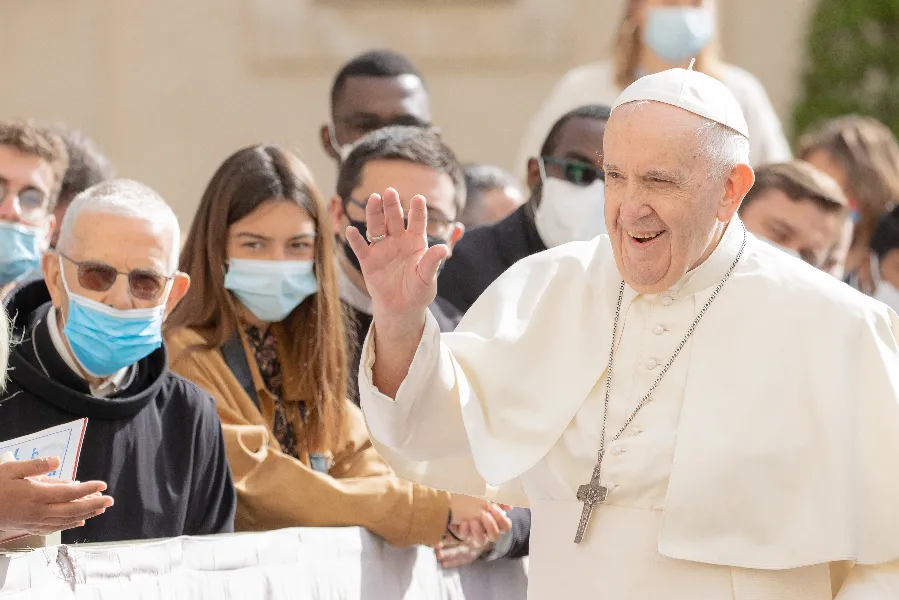
The pope, who devoted his May 12 address to “spiritual combat,” offered the man as an example of the fruits of tenacious prayer.
He said: “That man, fighting with prayer, received the grace of Our Lady. Our Lady listened to him. And I saw this: prayer works miracles, because prayer goes directly to the heart of the tenderness of God, who cares for us like a father.”
“And when He does not grant us a grace, He will grant us another which in time we will see. But always, combat in prayer to ask for grace.”
“Yes, at times we ask for grace we are not in need of, but we ask for it without truly wanting it, without fighting… We do not ask for serious things in this way. Prayer is combat, and the Lord is always with us.”
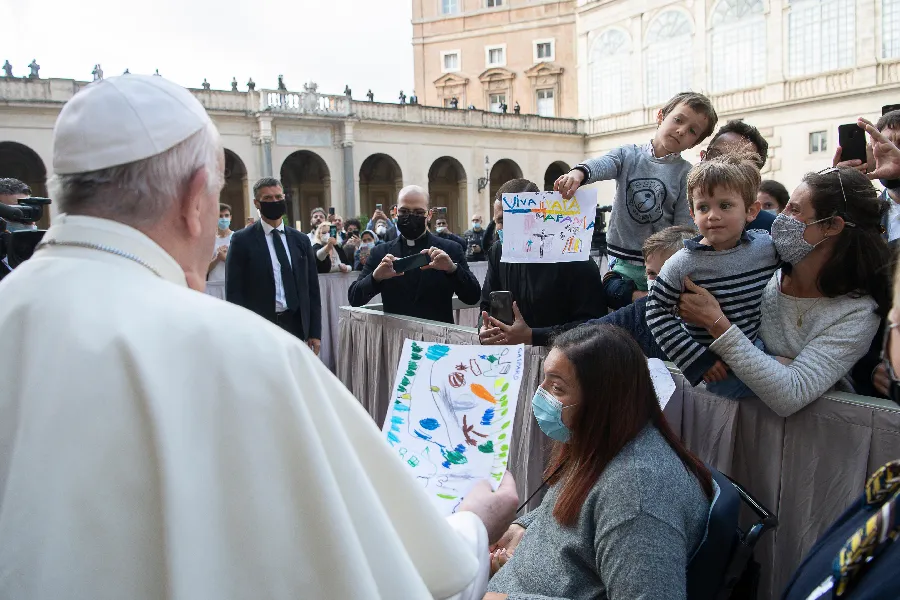
The pope was speaking in the San Damaso Courtyard of the Apostolic Palace in his first Wednesday audience with the public since Oct. 28, 2020. The elegant courtyard has a capacity of around 500 socially distanced and masked pilgrims.
The address was the 33rd reflection in his cycle of catechesis on prayer, which he launched in May 2020 and resumed in October following nine addresses on healing the world after the pandemic.
He began by expressing his delight at once again meeting pilgrims “face-to-face.” He explained that it was “not nice to speak in front of nothing, to a camera,” after the Vatican decided to move the audiences behind closed doors last fall as a precaution against the spread of COVID-19.
He told those taking their seats in the courtyard that “seeing each one of you pleases me as we are all brothers and sisters in the Lord, and looking at each other helps us to pray for each other.”
He added: “Thank you for your presence and your visit. Take the pope’s message to everyone. The pope’s message is that I pray for everyone, and I ask you to pray for me, united in prayer.”
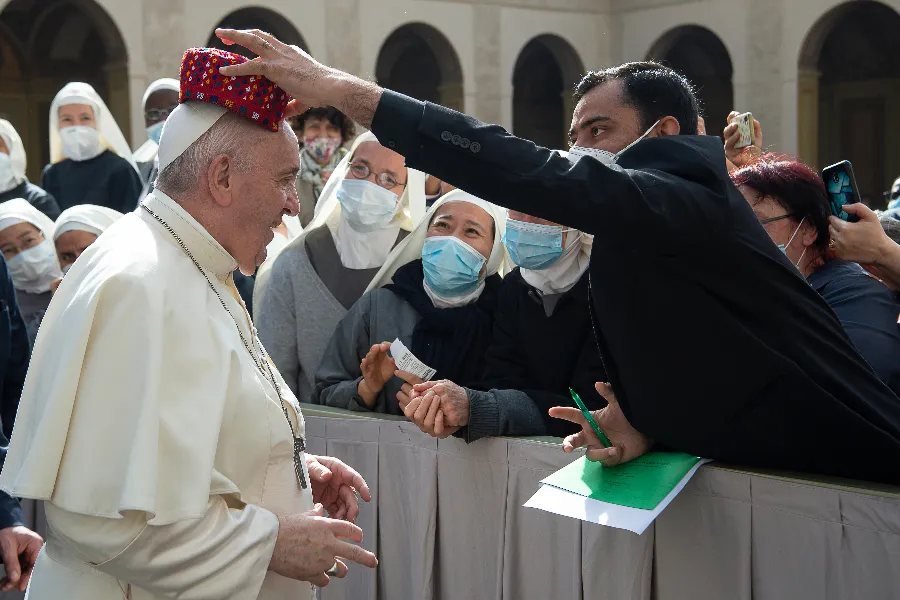
The pope acknowledged that Christian prayer was not a “walk in the park.”
“None of the great people of prayer we meet in the Bible and in the history of the Church found prayer “comfortable”. Yes, one can pray like a parrot — blah, blah, blah, blah, blah — but that is not prayer. Prayer certainly gives great peace, but through inner struggle, at times hard, which can accompany even long periods of life. Praying is not something easy, and this is why we flee from it.”
“Every time we want to pray, we are immediately reminded of many other activities, which at that moment seem more important and more urgent.”
“This happens to me too! It happens to me. I go to pray a little… and no, I must do this and that… We flee from prayer, I don’t know why, but that is how it is. Almost always, after putting off prayer, we realize that those things were not essential at all, and that we may have wasted time. This is how the Enemy deceives us.”
He acknowledged that throughout the ages saintly people have described prayer not only as joyful but also as tedious and tiring. Nevertheless, they persisted in prayer despite not finding satisfaction in it.
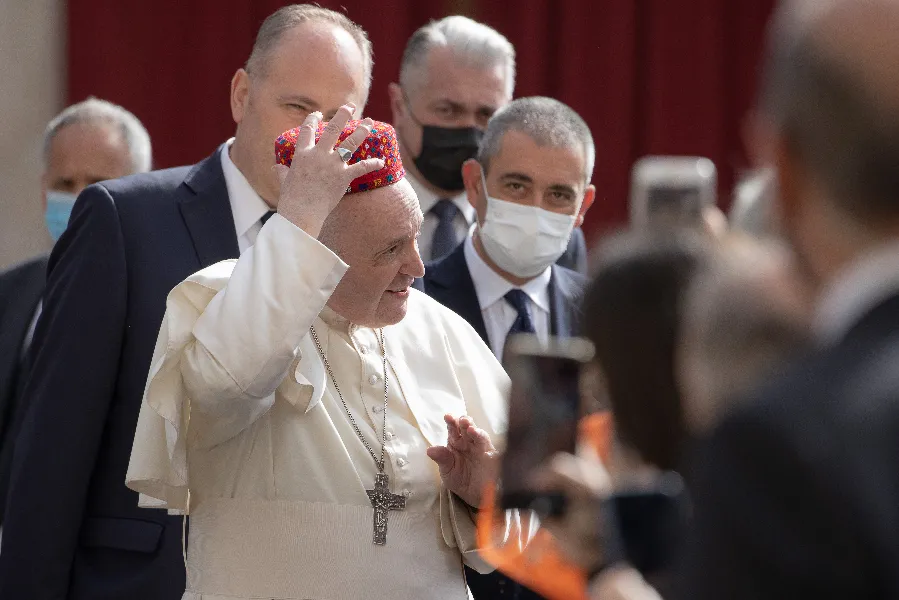
He said: “Silence, prayer, and concentration are difficult exercises, and sometimes human nature rebels. We would rather be anywhere else in the world, but not there, in that church pew, praying.”
“Those who want to pray must remember that faith is not easy, and sometimes it moves forward in almost total darkness, without points of reference.”
“There are moments in the life of faith that are dark, and therefore some saints call this ‘the dark night,’ because we hear nothing. But I continue to pray.”
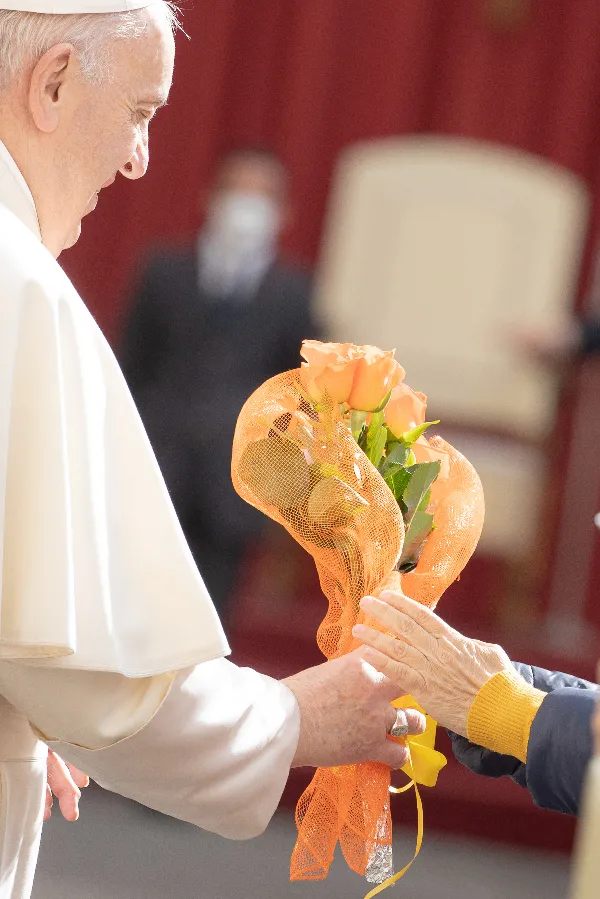
The pope observed that the Catechism of the Catholic Church lists the “enemies of prayer.” The worst enemies, he said, were “found within us.”
He advised people afflicted by these internal enemies to turn to “the masters of the soul” who personally discovered ways to overcome them.
Francis, the first Jesuit pope, recommended reading the “Spiritual Exercises of Ignatius of Loyola,” which he described as “a short book of great wisdom that teaches how to put one’s life in order.”
He explained: “It makes us understand that the Christian vocation is militancy, it is the decision to stand beneath the standard of Jesus Christ and not under that of the devil, trying to do good even when it becomes difficult.”
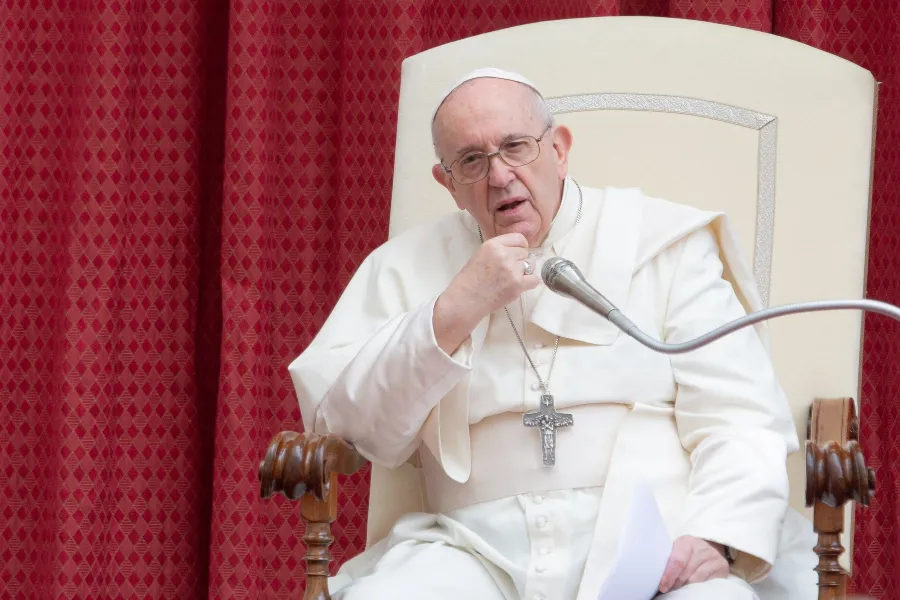
Above all, he said, we should remember in times of trouble that we are not alone.
He told a story from the life of St. Anthony the Great, who helped to spread Christian monasticism in the fourth century.
He said: “His biographer, St. Athanasius, Bishop of Alexandria, recounts one of the worst episodes in the life of the hermit saint when he was about the age of 35, a time of middle age that for many people involves a crisis.”
“Anthony was disturbed by the ordeal, but resisted. When he finally became serene again, he turned to his Lord with an almost reproachful tone: ‘But Lord, where were you? Why did you not come immediately to put an end to my suffering?’ And Jesus answered: ‘Anthony, I was there. But I was waiting to see you fight.’”
Concluding his address, the pope said: “If in a moment of blindness we cannot see His presence, we will in the future. We will also end up repeating the same sentence that the patriarch Jacob said one day: ‘Surely the Lord is in this place; and I did not know it’ (Genesis 28:16).”
“At the end of our lives, looking back, we too will be able to say: ‘I thought I was alone, but no, I was not: Jesus was with me.’ We will all be able to say this.”
A precis of the pope’s catechesis was then read out in several languages. After the summaries, he offered a greeting to members of the various language groups.
Addressing Portuguese-speaking pilgrims, he noted that May 13 is the feast of Our Lady of Fatima.
“Tomorrow let us remember Our Lady of Fatima with great veneration! Let us place ourselves with confidence under her maternal protection, especially when we find difficulties in our prayer life,” he said.
To Polish-speaking pilgrims, he said: “Tomorrow is the liturgical memorial of the Blessed Virgin Mary of Fatima and the 40th anniversary of the assassination attempt on St. John Paul II.”
“He himself emphasized with conviction that he owed his life to the Lady of Fatima. This event makes us aware that our lives and the history of the world are in God’s hands.”
“To the Immaculate Heart of Mary we entrust the Church, ourselves, and the whole world. We ask in prayer for peace, an end to the pandemic, a spirit of penance, and our conversion.”
Speaking to Italian pilgrims, he said: ”During this month of May, dedicated to the Blessed Virgin, I invoke Our Lady’s heavenly protection on each one of you and on your respective families.”
He added: “Have frequent recourse to Mary, Mother of believers! The various forms of Marian devotion, and especially the recitation of the holy rosary, will help you to live out your journey of faith and Christian witness.”
The general audience ended with the recitation of the Our Father and the Apostolic Blessing.
If you value the news and views Catholic World Report provides, please consider donating to support our efforts. Your contribution will help us continue to make CWR available to all readers worldwide for free, without a subscription. Thank you for your generosity!
Click here for more information on donating to CWR. Click here to sign up for our newsletter.




Leave a Reply